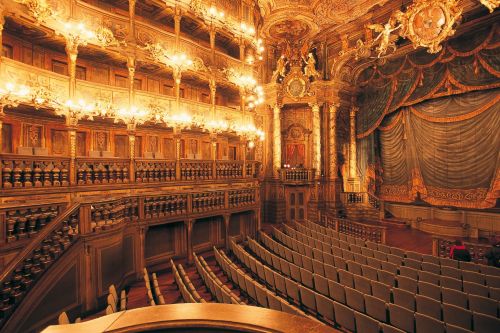- Dear Readers::
- After nearly 12 years and 550 issues, “Monday Musings” is taking a break and suspending publication for the summer months. The publication will be resumed in September. Thank you.

Assad Meymandi, MD, PhD, ScD (Hon), DLFAPA
Distinguished Life Fellow, American Psychiatric Association
Adjunct Professor of Psychiatry UNC School of Medicine at Chapel Hill
Filed under The Writer
On Dreams…
Monday Musings for Monday July 11, 2022
Volume XII 27/54

On Dreams, Psychoanalysis and Neuroscience
by Assad Meymandi, MD, PhD, ScD (Hon), DLFAPA*
Interest in dreams goes back to Sumerian recordings some 8,000 years ago. There are abundant references to dreams in Torah, the Bible, the Holy Quran, and other celestial books, such as Avesta, the book of Zoroaster, written 500 BC. But it was not until early last century, when Freud published his work on understanding and interpreting dreams, that a firm connection between dream, memory, and “mental” history began to evolve.
Fast-forward the clock. Neuroscientific interest in dreams started in 1953 with the discovery of rapid eye movement (REM) sleep by Aserinsky and Klietman, taking psychophysiologic findings of dream into the realm of biology. There are many exciting discoveries in the area of psychoendocrinology of dream and memory coming out through many sources and laboratories both in the United States and abroad. In fact, an article by Mauro Mancia, the enormous sage of the Italian academia, neurobiologist, and psychoanalyst, was recently published in the American Journal of Psychiatry entitled, “The Role of the Interrelation Between Serotonin (5-HT), Muramyl Dipeptide, and Interleukin-1 (IL-1) in Sleep Regulation, Memory, and Brain Regulation.”
This brings me to a most interesting read: Psychoanalysis and Neuroscience, which was edited by Dr. Mancia. Dr. Mancia is Professor Emeritus of Neurophysiology, University of Milan, Italy, and Training Analyst of the Italian Psychoanalytical Society and has written extensively on the subjects of narcissism, dreams, sleep, memory, and the unconscious. This particular work by Mancia, Psychanalysis and Neuroscience [Springer, 436 pages, 2006] is organized into four parts that propose a link between neuroscientific knowledge and psychoanalytic theories of mind.
Overview
Part I—Memories and emotions. Part 1 of the book consists of eight chapters written by experts in their respective fields and examines one basic message: Memories stand out and last longer when they are accompanied and highlighted by emotional experience. The message conveys the importance of interconnection of memory with emotions. With scientific detail and elaboration, the authors demonstrate the proteins in the amygdala and hippocampus are responsible for retention of memories, which are parts of the limbic system that is, overall, responsible for housing emotions, denoting the common neuronic pathway for memory and emotions. It was Paul D. McLean in the 1940s, while mapping specific components of the limbic system, who invoked the romantic notion that the limbic system is “the anatomy of emotions.”
Part II—The shared emotions. The second part of the book examines the sensorimotor side of “empathy pain,” the role of the anterior cingulate cortex in affective pain, and social cognition and response to embodied stimulation.
Part III—The dream. The third part of the book, which is perhaps the most exciting, deals with the dream in the dialogue between psychoanalysis and neuroscience. One chapter dissects the neurobiological and psychoendocrinological anatomy of dreams and memory formation. In recalling events of the past as practiced in psychoanalysis, the brain’s physiology and even anatomy and morphology stands to be changed. This part of the book reminded me of another significant book recently published, Train your Mind, Change your Brain, in which author Sharon Begley, a Wall Street Journal neuroscience reporter, showed how thinking can change the brain functionally and anatomically.
Part IV—The fetus and the newborn. Part IV discusses fetal behavior. While the word embryology is seldom used, the authors of these two chapters examine in detail the onset of human fetal behavior and the neurophysiologic impact and influence of nursing on the early organization of the infant mind.
Discussion
With the knowledge that the basic instrument in the discipline of psychoanalysis is recall of memories, dreams, and transference, the 21 contributors to this book make a good case as to why there should be a robust and constant conversation between psychoanalysts and neurophysiologists. It is time for these disciplines to learn about and from each other. The book’s contributors invite readers, in the most scholarly and convincing manner, to consider that psychoanalysis is a powerful reservoir of volumes of memories and should integrate resources with neurophysiology and enjoy the mutual fertile and rich products. It is the expressed purpose of the book to further elaborate and understand the relationship between memory, dreams, and neurobiological changes occurring during the experience and the course of psychoanalysis. This holy partnership is encouraged, and the book’s contributors, like priests, are willing to bring about this holy matrimony to the world of science.
The downside of the book is that it is a rather difficult read, likely owing to the fact that it is a translated work. I do not know how much education on psychoanalysis and neurophysiology the translator, Mrs. Judy Baggott, has had. To a linguist, such as myself, who is conversant with a variety of Eastern and Romance languages, the slip of the translator shows fairly frequently. Her skirt should be longer! However, this minor flaw should not dissuade anyone from tackling this enormously informative and scholarly work.

*The writer is Adjunct Professor of Psychiatry, University of North Carolina School of Medicine at Chapel Hill, Distinguished Life fellow American Psychiatric Association, and Founding Editor and Editor-in-Chief, Wake County Physician Magazine (1995-2012). He received Raleigh Medal of Art in 2001, inducted to Raleigh Hall of Fame 2013, elected Lifetime Trustee, North Carolina Symphony in 2015, and 2016 recipient of NC Award, Fine Arts.
Filed under The Writer
On July 4th…
Monday Musings for Monday July 4, 2022
Volume XII. No. 26/548
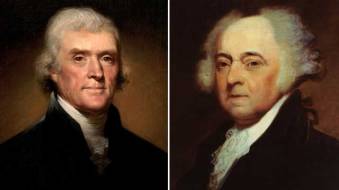
Thomas Jefferson John Adams
Happy July 4th! Natal Anniversary of America and Mortal Anniversary of John Adams and Thomas Jefferson
What Kind of Music Uncle T.J. Liked? (Part II)
By Assad Meymandi, MD, PhD, DSc (Hon), DLFAPA*
Happy 246th birthday to our beloved nation! We thought it is fitting to honor the US flag by flying it in today’s Monday Musings, instead of our regular book logo. On July 4, 1826, on the 50th golden anniversary of signing of the Declaration of Independence, John Adams died. Historians put his death at around 9:00 AM. Adams and Thomas Jefferson, political arch enemies for decades, had reconciled and become good friends and pen pals in the last two decades of their lives. They exchanged more than 300 letters before that fateful day, July 4 1826. According to reliable history, Adams’ last words were “Thomas Jefferson still survives…” not knowing that Thomas Jefferson, too, had died that morning at age of 83.
Tuesday July 4, 1826 was a very hot day. The sun seemed to have a notion of what was happening, since it hurriedly rose and climbed to the top of the sky in mid-morning. No wonder, two US Presidents, both belonging to the super exclusive club of the “Founding Fathers of America”, both signatories to the Declaration of Independence, and one the actual author of that sacred document, died that morning on the same day.
Another US President who died on July 4, was James Monroe, born April 28, 1758, Died July 4, 1831.
Faithful readers of this space recall that we have examined the books the founding fathers read. In this essay and subsequent ones we will examine the music they loved and played. We will start with Thomas Jefferson. In a way, we celebrate July 4 by getting to know the musical taste of staggeringly curious and intellectually superior polymath of all time, Thomas Jefferson, the third President of our beloved nation.
Thomas Jefferson was an accomplished violinist. He even bought a pocket fiddle that accompanied him wherever he went. He was an active member of chamber music ensemble that played for the royal governor of Virginia. According to musicologist and former Meymandi Fellow at the National Humanities Center, the learned author and researcher, Professor Stuart Isacoff, Jefferson loved and admired Corelli, Haydn, Gluck, Handel, Vivaldi, Pergolesi, Boccherini, Stamitz, Clementi, and J. C. Bach (J. S. Bach’s youngest son). The 6500 volumes that Jefferson sold to the government which formed the nucleus of the Library of Congress, in addition to work of the above composers, contained sheet music by lesser known composers such as Padre Martini, Gaetano Pugnani, Ignaz Pleyel and Italianized German composer, Giovanni Adolfo Hass. Thomas Jefferson fell in love with a patrician beauty, a rich young widow, Martha Wayles Skelton whose favor he won in a competitive race with two other suitors by playing his violin when he courted her. Jefferson continued to practice daily and play his violin which Martha thoroughly enjoyed. He wanted to commission a piece to honor his beloved wife after her death. He was aware that Mr. Goldberg paid JS Bach to compose the Goldberg Variations. According to some apocryphal sources, Jefferson even had a brief meeting with Mozart to discuss the matter, but somehow the commissioning never materialized. Jefferson’s not being fond of Mozart, because of Mozart’s “conduct” may have had something to do with the project not materializing. However, Jefferson recognized Mozart’s genius and loved his music.
Also, Jefferson liked Handel’s Messiah, Hayden’s solo cantatas, John Gay’s The Beggar’s Opera and many American folk songs and music of emerging American composers such as his fellow Declaration signer, Francis Hopkinson. In the writings of Jefferson’s granddaughter, Ellen Coolidge, who lived in Monticello, there are many references to Jefferson’s love for music. As the former president became older, he wrote more about music and spent more time collecting, humming and playing his various favorite composers.
Happy 4th to All. There is no place on earth like America, where the beacon of freedom continues to shine, where the flame of liberty continues to illuminate the landscape of humanity, where the rule of law and not the whim of Shahs, Mullahs and dictators is supreme. God Bless America.

*The writer is Adjunct Professor of Psychiatry, University of North Carolina School of Medicine at Chapel Hill, Distinguished Life fellow American Psychiatric Association, and Founding Editor and Editor-in-Chief, Wake County Physician Magazine(1995-2012). He is a dramaturge. Received Raleigh Medal of Art in 2001, inducted to Raleigh Hall of Fame 2013, elected Lifetime Trustee, North Carolina Symphony in 2015, and 2016 recipient of NC Award, Fine Arts.
Filed under The Writer
On Washington’s Ancestral Home…
Monday Musings for June 27, 2022
Volume XII, No. 26/547
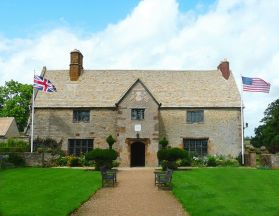
Sulgrave Manor, Sulgrave,
South Northamptonshire, England
Happy Birthday America (Part I)
Sulgrave Manor, a Source of Pride or Shame
By Assad Meymandi, MD PhD, ScD (Hon), DLFAPA*
July 4, the birthday of our beloved nation, is approaching. We observe the occasion by recalling the death of the two most brilliant of the founding fathers, John Adams and Thomas Jefferson. We also remember with reverence that James Monroe, the 5th US president died on July 4, 1832. Today, a memory of years past that is very much connected to July 4.
To me, George Washington was a holy person and his ancestral home, The Sulgrave Manor is a sacred space. GW’s gift of limiting his appetite for power is considered by many, including Goethe, as a remarkable and rather rare attribute. Washington is admired by all nations, friends and foes. After fathering America and serving two terms as president, like the famed Greek general Cincinnatus, he returned to his farm. He liberated his slaves and worked and lived as an ordinary citizen. So, I am offering below as an overture to the stunning opera of the birth of our nation.
Around my house, we are purists. We celebrate and observe Lincoln’s birthday on February 12 and pay homage to the father of our country on his natal anniversary on February 22. Today’s “Monday Musings” was written on July 4, 1971, after a visit to Sulgrave Manor in Northampton, England, and has been reprinted every year since.
Sulgrave, a hamlet, population 58, houses one of the most significant pieces of American and British history, unbeknownst to many Americans and certainly British. Sulgrave Manor, the ancestral home of George Washington, the father of America, lies 14 miles southwest Northampton, a busy city of 120,000. No, you won’t find it in the Northampton city directory, nor does it appear on the county or “Shire” map. The Chamber of Commerce of Northampton politely said “We do not know, Sir” to my telephone inquiry as to the whereabouts of Sulgrave Manor. No place in London, including the eager to please Bureau of Tourism, acknowledged its existence. Like an in- house secret shrouded in mystery, it eluded my persuasive curiosity.
My host, Dr. Michael O’Brooke, a consultant psychiatrist at Saint Andrews Hospital in Northampton, almost changed the subject when I asked about Sulgrave. Somehow we ended up talking about the newly discovered oil off the Britain’s coast. Finally I pinpointed him, and demanded an answer. With his genuine English wit he snapped “Oh, yes, I will have my driver to take you there…” He made it clear in his elegant old Anglo-Saxon, non-verbal but piercing way, that he did not wish to discuss the matter any further.
I rode through the bustling streets of Northampton. It belied that it was July 4. No picnic, no American flags and no Happy Birthday! Total oblivion of the importance of America’s birthday enveloped this industrial city which lies 70 miles southwest of London. Finally, we arrived at Sulgrave. It was a bright and sunny afternoon. A fairly short, thin gentleman whose bushy eyebrow literally covered his eyes, with graying full head of hair combed straight back giving ample space for a high forehead, looking like a character just stepped out of one of F. Scott Fitzgerald’s novels, greeted me with a simple but eloquent Churchillian deep voice: “Good afternoon! I am Mr. David Robbins, your guide.” We talked a bit. I felt like he was genuinely happy to see me breaking his loneliness, somehow reminding me of the British version of the Maytag repairman commercial.
The layout of Sulgrave Manor was elegant. Eight courtyards, a vegetable garden, and immaculately kept manicured yards and shrubs took me back 400 years. Foxglove of several colors graced all sidewalks. A British and an American flag were flying on the sides of the building. Mr. Robbins gave me a quizzical look upon finding that I might write up the Sulgrave experience for my fellow Americans. He briefly disappeared, soon to reappear with brilliantly printed brochure. He wanted to be sure that the facts were accurately reported…As Mr. Robbins and the brochure have it: the main part of the house was built of stone and he made sure I understood that it was the original structure, and not like the wooden colonial houses which were burnt and re-constructed—a mere replica—this house was built by Lawrence Washington in 1560. General George Washington was the seventh descendant of Lawrence Washington, who incidentally, was the mayor of Northampton in 1539 and again in 1545. Mr. Robbins took me around the building with utmost care, explaining that the perpetual Board of Trustees of the manor consists of the British Ambassador to US and the American Ambassador to England. The manor and the grounds belong to both countries. The cost of maintenance, conservation and purchase of pieces of land are born directly by both countries.
There was an air of ambivalence inundated by moments of awkwardness as Mr. Robbins’ basic loyalty to his own country and crown saw George Washington as a rebellious rash soldier with poor manners who committed an act of treason by fathering America, along with the pride that he finally acknowledged for the American experience, offered twinges of cultural/patriotic schizophrenia. Here I stood, on a 4th of July, my country’s birthday, proud to be an American and concerned about my host’s mixed feelings. I empathically told him that if I were in his place I, too, would be most uncomfortable. There was a sudden glitter in Mr. Robbins’s eyes. After so many years of working there, he had found a person who looked at and talked with him as a person with feelings. He looked me in the eyes and invited me to the afternoon tea. As we were sipping the tea he asked me about my work. “Psychiatrist” I said. “Oh Lord, I should have known not to ask…” he said in reply. I saw not only the most proudly and secretly kept historical monument in England, but also had made a good friend in Mr. Robbins, the official host/guide of Sulgrave Manor.
Mr. Robbins and I kept in touch. He was scheduled to come to US for a visit but died of a sudden heart attack in the mid-eighties. He was 80 years old.

*The writer is Adjunct Professor of Psychiatry, University of North Carolina School of Medicine at Chapel Hill, Distinguished Life fellow American Psychiatric Association, and Founding Editor and Editor-in-Chief, Wake County Physician Magazine (1995-2012). He is a dramaturge. Received Raleigh Medal of Art in 2001, inducted to Raleigh Hall of Fame 2013, elected Lifetime Trustee, North Carolina Symphony in 2015, and 2016 recipient of NC Award, Fine Arts.
Filed under The Writer
On Schizophrenia…
Monday Musings for June 27, 2022
Volume XII. No. 25/54
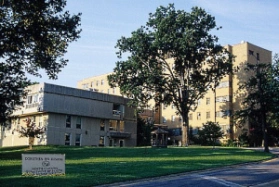
Spirituality in Treatment of Schizophrenia
By Assad Meymandi, MD, PhD, ScD (Hon), DLFAPA*
It was a hot day in Fayetteville, North Carolina. The late July/August sun was beating down. You could fry an egg on the sidewalk by Cape Fear Valley Hospital. The thermometer at the Savings and Loan Bank registered 101. The climate on the street felt like something between a Turkish bath and a green house.
I had just gotten back from lunch and was seeing my first patient at of the afternoon at 1:00 o’clock. My personal secretary buzzed me. We had a strict rule that my sessions with patients would not be interrupted unless it was an emergency, like life or death. So her interrupting me must have been very important. It was. I answered the phone. My secretary was very upset. All she said was that I ought to step out and see a patient who urgently needed help.
The patient was a young man in his early twenties. He was gaunt, emaciated, a shell of a man, a mere shadow of a person. He was tall, unshaved, with matted hair and sunken eyes. His clothes were torn and his bare feet were caked with dirt. There was a stench of body odor, old dried sweat and neglect surrounding his handsome frame. His parents said that he had not eaten any food in four days. They reported that he had refused all forms of liquids, even Mountain Dew, his favorite drink. He had not slept for four days. Earlier that morning they had found him in the barn behind the house with a large butcher knife trying to cut his throat. The family was a kind and gentle sort. They were farmers in a rural community near Fayetteville who grew tobacco, peanuts and soy beans. The family was well established and their farm dated back several generations to the Civil War.
I approached the young man and extended my hand to shake his. He ignored me. He was looking away, mumbling something to himself, something that his parents called “gibberish.” They said that he had been saying the same thing, like some kind of mantra, day and night for four days. We quickly ruled out the possibility of alcohol and substance-induced psychosis because his parents had been with him day and night during his illness, and he had no intake of food or water, much less drugs or alcohol. He was locked up in his own closed world.
I noticed that he was agitated with a fine tremor in his hands, yet there was a sense of peace and calm about him. There was no question that he was psychotic, hallucinating and delusional. He was completely disconnected from his environment and those who were in the room with him, including his sweet and distraught mother. I took the patient to one of the examining rooms in my office. I listened carefully to what he was mumbling, what his parents and the family were calling “gibberish”. After careful listening and paying attention to the faint movements of his lips, I heard scattered words in a staccato and dysrhythmic manner. I heard “lamb of God…sacrifice…lamb of God…Jesus the Lord…” I asked Bryan (not his real name) to tell me more about the Lord, Lamb of God. He ignored me. We just sat there patiently with my request repeated. Without pushing him, I made it known that I would listen if he wanted to tell me more about the Lord, Lamb of God.
He began to throw skulking glances in my direction. His hand furtively approached my hand resting on the arm chair and extended in his direction. He finally said that he was Jesus, Lamb of God and wanted to be sacrificed for the Lord. A thought occurred to me like a stroke of lightening. I said, “The Lord does not want such a skinny and nervous lamb to be sacrificed for Him. Why don’t you eat, fatten up, and take some medication to calm you down, so that you will be worthy of the sacrifice?” Somehow he connected with the promise of turning him into a more sacrifice-worthy lamb. He took a sip of water, and gradually ate some food. Then he accepted some intramuscular medication consisting of Thioridazine (Mellaril) and Benzodiazopine (Valium), state of the art medications in the 1960s. He took more food and drank some Mountain Dew before he was admitted to the hospital.
When I made rounds that evening, he greeted me with some degree of warmth, his fulminating acute psychosis subsided. He gradually calmed down, rested and ate. In the following days, through psychotherapy we explored the genesis of his psychotic breakdown. He continued to recover with full restoration to health. We never brought up the subject of his wanting to be a sacrificial lamb, because through therapy, he learned how to become an “I” and stop being a “me”, a lamb-like subject who could be manipulated by people around him.
Several months ago, a fat packet came to me in the mail from Bryan. It was an invitation to the bicentennial anniversary of his farming village. Interestingly, my former patient, now in his early sixties, was listed in the program as the leading citizen of that community and the convener (master of ceremonies) of that day’s festivities.

*The writer is Adjunct Professor of Psychiatry, University of North Carolina School of Medicine at Chapel Hill, Distinguished Life fellow American Psychiatric Association, and Founding Editor and Editor-in-Chief, Wake County Physician Magazine (1995-2012). He is a dramaturge. Received Raleigh Medal of Art in 2001, inducted to Raleigh Hall of Fame 2013, elected Lifetime Trustee, North Carolina Symphony in 2015, and 2016 recipient of NC Award, Fine Arts.
Filed under The Writer
On Father’s Day…
Monday Musings for Monday June 21, 2021
Volume XI. No. 25/545
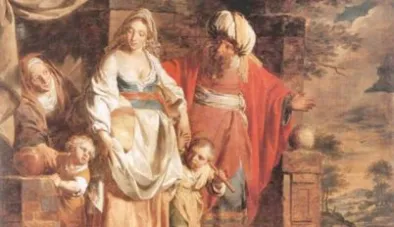
Pieter Jozef Verhagen. Hagar and Ishmael Banished by Abraham, (1781)
Father’s Day
By Assad Meymandi, MD, PhD, ScD (Hon), DLFAPA*
This coming Sunday, June 19, 2022, is Father’s Day. A few reflections:
Brief History
Arkansas has not only given us the Clintons and the perennial presidential contender, the Reverend/Governor/evangelist/guitar picking/author Mike Huckabee, but it has given us Sonora Smart Dodd who literally created Father’s Day back in 1910. She celebrated the first Father’s Day in Spokane, Washington to honor her father, the Civil War veteran William Jackson Smart, a single parent who raised his six children single-handedly in Arkansas. Sonora was moved to recognize her father’s contribution by proposing a day to honor all fathers. However, it was not until 1972, 58 years after President Woodrow Wilson made Mother’s Day official, that the Father’s Day became a nationwide holiday in the United States.
Father vs. Dad
It is so easy to be a father. All it takes is a willing partner and nine months later a child is produced. But it takes a whole lot of preparation and commitment to be a dad. One of the main reasons we have more per capita prison/jail inmates than anywhere else in the industrial nations is this very simple notion: plenty of fathers who bring children to the world have no preparation or commitment to be or become a dad. Recent statistics point to the fact that the rate of imprisonment in the United States more than quadrupled during the last four decades. The U.S. penal population of 2.2 million adults is by far the largest in the world. Just under one-quarter of the world’s prisoners are held in American prisons. The U.S. rate of incarceration, with nearly 1 out of every 100 adults in prison or jail, is five to 10 times higher than the rates in countries of Western Europe and other democracies. The reason is simply too many men, like sex machines, reproduce and abandon. Most prisoners grew up without love, care and devotion of a dad. And our government seems to reward this delinquent behavior by giving incentive in expanding the welfare state. It is an abomination that so many single mothers of four or five, and so many children who have never met or known their fathers…
Dads love, care, provide, and offer moral leadership to, and role models for their children. Dads are selfless, giving and loving. Dads offer security, permanence, and they are there for their children forever. To be a dad is the most responsible job on earth. No, I am not suggesting to cut resources of, and services to, the children. On the contrary, we need to pump in love and all resources necessary to make sure the children who are already here have what it takes to become responsible citizens. I am saying that family planning should be emphasized and through education and information, sex machines dismantled. If we could spend the corrections budget on education, eventually we will decrease the prison population drastically.
Historically, the roots of the Arab Israeli conflict go back to the days of Abram (before he became Abraham–Genesis 17) of Ur. The two biographers of Abraham, Zakaria-ye- Massuyeh, and Honein Ibn Ishagh ably trace the origin of the Arab-Israeli conflict to Abraham and his two sons, Ishmael and Isaac. The two brothers were fighting as most children do. Ishmael gathered his friends in one camp which became the origin of Arabs, and Isaac doing the same, naming his camp and entourage/followers the Israelis. Two brothers and their progenies, blood related cousins, have been killing one another for more than three thousand years…I guess one might say that Abraham was a faithful and superb prophet, fathering Judaism, Christianity and Islam, but did not know how to be a daddy to his own sons.
Personal Memories
Speaking of children fighting, I remember as a small boy being the youngest in the family. I used to argue and fight all the time with my sister next in age to me. We used to go to my father with our stories as to how we were victimized, expecting father to intervene on our individual behalf. My father would sit patiently and dispassionately listen to us carefully one at a time. My sister and I would anxiously await a judgment and a disposition. My father would hold both of us in his arms and say something like “I see you two have a disagreement, and I have faith in both your abilities to resolve the disagreement by understanding and talking and not fighting…” He would kiss us and let us go. My father was an esthete. He was a poet and a calligrapher. He flooded our home with books, and books and books… We had music, poetry, and flowers…Next to God, love and family, education was most revered by our father.
What to Do?
What do we need to do to correct what Abraham failed to do? How do we bring peace and reconciliation to Jews and Muslims? All major religions and their Holy Books including Bhagavad Gita of Hindus, Avesta of Zoroastrians, Torah of Moses, Quran of Islam and Bible of Christians recommend forgiveness and conciliation. As one exposed to all these Holy writings, I am most impressed by Christian love and the Pauline theology of hope, possibilities, forgiveness, and redemption. It is the unique attribute of Christian teaching to transform one’s enemy through the act of love and turning the other cheek. What a magnanimous feat of humanity and Godliness. I am for establishing dialogue, learning the enemy’s language, pressing flesh and showing acts of love and mercy.
Happy Father’s Day to all.
The Meymandi touring Exhibition Gallery, North Carolina Museum of Art, is named for my late father, Farajollah Meymandi.

*The writer is Adjunct Professor of Psychiatry, University of North Carolina School of Medicine at Chapel Hill, Distinguished Life fellow American Psychiatric Association, and Founding Editor and Editor-in-Chief, Wake County Physician Magazine (1995-2012). He is a dramaturge. Received Raleigh Medal of Art in 2001, inducted to Raleigh Hall of Fame 2013, elected Lifetime Trustee, North Carolina Symphony in 2015, and 2016 recipient of NC Award, Fine Arts.
Filed under The Writer
On the Magna Carta…
Monday Musings for Monday June 6, 2022
Volume XII, No. 24/545
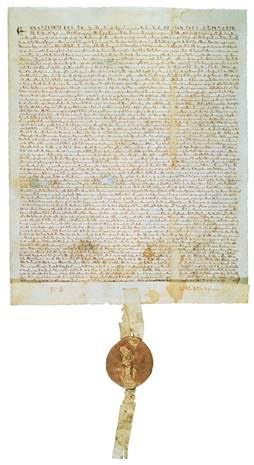
Happy Birthday, Magna Carta!
By Assad Meymandi, MD, PhD, ScD (Hon), DLFAPA*
Magna Carta, Latin for “Great Charter” is the treaty born in England and signed by King John on June 15, 1215. In nine days, we will celebrate Magna Carta’s 807th natal anniversary or birthday. First a brief history followed by some reflections:
Next time you are in London, go by the British Library, near Euston Station, climb the stairs. On the left you enter a pavilion full of old books, ancient manuscripts, including a Guttenberg Bible, etc. On the right, you will find a good size room set aside to display the magnificent British document, the Magna Carta, signed by King John of Lackland dated December 28, 1215. The document was actually written in Runnymede on June 15, 1215.
The room exhibiting Magna Carta is wired with the latest technology to give the viewers all they want to know about Magna Carta. But I have found the display, describing King Lackland’s Magna Carta, much lacking (pun intended), especially in the intellectual and political history of the precious document. What is presented in the British Library is very useful, but short on depth and epistemic understanding of events leading to the birth of the document. Here are some thoughts and a brief critical analysis of the document:
Faithful readers of this space recall the essay on Queen Matilda Maude of England (February 7, 1102- to September 10, 1167), who laid the cornerstone of Anglo-Saxon freedom and the governance of the rule of Law. Matilda was like our 20th century Susan B. Anthony (February 15, 1820 to March 13, 1906), who championed women suffrage by laying the work for the 19th amendment which was signed in 1919 by President Wilson. What a feat, nearly a century of freedom and voting right for the American women.
Going back to Matilda Maude and her important work to sow the seeds of Magna Carta in Britain’s mental space: Matilda and her younger brother were the only two legitimate children of King Henry I who had altogether sired 23 children. She reigned for a brief period of time and was never crowned, thus not listed in the British monarchic line of succession. Instead, her male cousin Stephens of Blois was the monarch 1135-1154 and is listed in the history books. Omitting the work and contribution of Matilda Maude form history of Magna Carta is a major historic and intellectual oversight.
Another significant omission is the impact of assassination of Thomas Beckett, the Archbishop of Canterbury, on December 29, 1170. As one notices, he was assassinated one day short of 45 years before the signing of Magna Carta. Archbishop Becket was assassinated by four knights from the court of King of England Henry II. They were dispatched to “rid England from a bothersome and intruding priest”. With the brutal killing of Beckett, the public became sensitized to the atrocities of Henry II, his wife Eleanor of Aquitaine, and their three sons and a ground swell of revolt against kingship began to slowly brew over the next 45 years. Indeed the excesses of Kings of England over a century brought on the emergence of Magna Carta, the principle message of which was to severely restrict the powers of the throne.
King John Lackland who signed Magna Carta was not a benevolent and humanitarian king like King Cyrus the Great of Persia and Hammurabi of Babylon and other famous altruists of yore. The 12 years old battle of Bouvines definitely restored French power under King Phillip II Augustus bringing the Angevin-Flanders conflict to an end. But the battle of Bouvines in 1214, enfeebled King John considerably. By 1214, King John was a worn out fellow bereft of energy and friends. The British Lords and aristocracy viewed him as a usurper of land with hedonistic tendencies similar to those Henry III. They detected King John’s weakness and vulnerability by moving rapidly and writing a document consisting of 61 clauses, they named it Magna Carta. It restricted the liberties of the king and moved England toward a constitutional monarchy. Magna Carta is essentially an unimpressive document mostly dealing with laws of commerce and cannons of trade. It does not hold a candle to US Constitution, our Bill of Rights, and the Declaration of Independence But some of its clauses are brilliant examples of human rights advocacy. Consider Article 39. It states “No freeman shall be arrested or imprisoned or deprived of his freehold or outlawed or banished or in any way ruined, nor will we take or order action against him, except by the lawful judgment of his equals and according to the law of the land.” Doesn’t it sound like something written by John Locke or Thomas Jefferson? In America, we are blessed to have the intellectual depth, wisdom, and knowledge of 2500 years history by a group of devoted patriots, America’s founding fathers who gave us our Republic. They skillfully wove concepts from Declaration of Human Rights by Persia’s King Cyrus the Great, dubbed Messiah in the Bible (Isaiah 41), Code of Hammurabi, and the renaissance philosophers, especially Pico Della Mirandola’s “Oration on the Dignity of Man” in the tapestry of our beloved nation.
Personally, I love America. Unlike many of my misguided colleagues who are ashamed of America, I am proud of America. I love the cacophony and gridlock in US Congress with 8% approval rating. I love the liberty and freedom to disagree, argue, and have robust and serious conversation without fear of being arrested and jailed. I love America’s devotion and commitment to supremacy of the rule of law and not those of a ruler, a Shah, an Ayatollah or a some two-bit dictator-President-for-Life. And I am happy to pay my taxes to ensure the survival of our freedom, but not happy to see my taxes wasted, and moneys misspent on programs that encourage delinquent and antisocial behavior. Behavior like irresponsibly fathering many children by many women, and not being a daddy to them (See Monday Musings for Father’s Day). Behavior like setting one’s highest ambition in life to get on public welfare. Behavior like coming to America, living here for many years, enjoying the fruits of the liberty, freedom and equality America offers, yet not learning the English language, and not assuming any civic pride and patriotic responsibility.

*The writer is Adjunct Professor of Psychiatry, University of North Carolina School of Medicine at Chapel Hill, Distinguished Life fellow American Psychiatric Association; Life Member, American Medical Association; Life Member, Southern Medical Association; and Founding Editor and Editor-in-Chief, Wake County Physician Magazine (1995-2012). He received Raleigh Medal of Art in 2001, inducted into Raleigh Hall of Fame 2013, elected Lifetime Trustee, North Carolina Symphony in 2015, and 2016 recipient of NC Award, Fine Arts.
Filed under The Writer
On Memorial Day…
Monday Musings for Monday May 30, 2022
Volume XII, No. 22/544
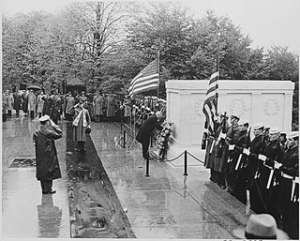
Arlington National Cemetery
Memorial Day, Pericles, Abraham Lincoln, Gettysburg Address
By Assad Meymandi, MD, PhD, ScD (Hon), DLFAPA*
Today is Memorial Day. Some reflections:
In so many great books and in so many great bodies of literature, we are told that “to die for one’s own country is the noblest deed.” The conceptual architectonic of this notion goes back to 5th century BC Athens and to mid-nineteen century AD America. The architects are two superb statesmen, Pericles of Athens and Abraham Lincoln of America separated by almost 2500 years. The occasion was the funeral oration by Pericles for the war dead in Athens 404 BC, and the funeral oration by Abraham Lincoln at Gettysburg in 1865 AD for the America’s civil war dead. Both speeches proclaim that democracy is worth sacrificing lives and spending the nation’s financial and material resources. In their speeches, Pericles and Lincoln forcefully and eloquently submit that “to die for the cause of democracy and national unity is the noblest act.”
Pericles and Lincoln, these two incomparable souls had qualities that set them apart as statesmen. They were not merely politicians. They both had bedrock principles and solid foundation of beliefs that did not change with public polls and political expedience. They both had a moral compass and had a sense of absolute right and wrong. They each had a vision for their nation as a model for the world and humankind, and they had the ability to build consensus. Pericles and Lincoln both led their respective nations, Greece and America, into civil wars. Pericles led his nation to war between Sparta and Athens (431 to 404 BC), and Lincoln led America to our Civil War (1861 to 1865). The Athenians and Spartans spoke the same language and worshipped the same gods. So did the Confederate soldiers and their brethren to the north. They spoke English (or according to H. L. Menken they all spoke ‘American’) and worshipped the same God. As an aside: you will enjoy reading H.L. Menken’s “American Language” which gives a deep analysis contrasting British English with American English.
The Origin of Memorial Day
The journey starts with Pericles and his funeral oration of 404 BC. Later Publius Vergilius Maro (70 BC to 19 BC), usually called Virgil or Vergil in English, the celebrated Roman poet in his famous epic poem in Latin, Aeneid, translated the words of Pericles from Greek to Latin. Lincoln, an intellectual and scholar, had read Aeneid as much as he had read the Bible. Aeneid is a poem about war. It spells out the conduct and the protocol of man at war. Virgil came to the conclusion that men who gave their lives to their country should be memorialized. Virgil popularized Pericles’ of views some 400 years earlier, laying down the roots of what we today know as Memorial Day.
Lincoln used Virgil’s concept of memorializing the dead soldiers. He also emulated Pericles who with unparalleled eloquence and clarity concluded that “to die for one’s nation is the noblest deed”. Almost 2500 years after Pericles, Abraham Lincoln, on November 19, 1863 in his funeral oration in 272 words Gettysburg Address told the nation why the war, where he was going with the war, and what the outcome of the war would be. He clearly articulated why 620,000 soldiers have given their lives. He told the nation that the ultimate goal was to ensure the unity of the nation and guarantee freedom for all Americans.
The Gettysburg Address, Lincoln’s marvelous use of words loaded with religious and Biblical symbolisms such as “fourscore, dedicate, consecrate, hallow, and sacred ground” invoked the spiritual dimensions of his persuasive message. And Lincoln did not have a team of speech writers and spin artist pollsters on his staff… In contrast, it is unclear to us why the ill-defined Iraq and Afghanistan wars now going on 16 years, at a cost of thousands of lives, and the expenditure of hundreds of billions dollars, continue. America is still waiting for an explanation of why we are there. Would not it be nice if we had a living Lincoln who could use 272 words to give us this reason?
Memorial Day as we know it today, originally called Decoration Day, is a day of remembrance for those who have died in service of the United States of America. Memorial Day was born out of the Civil War and a desire to honor our dead. It was officially proclaimed on May 5, 1868 by General John Logan, national commander of the Grand Army of the Republic, in his General Order No. 11. “The 30th of May, 1868, is designated for the purpose of strewing with flowers, or otherwise decorating the graves of comrades who died in defense of their country during the late rebellion, and whose bodies now lie in almost every city, village and hamlet churchyard in the land,” he proclaimed. Memorial Day is now observed in almost every state on the last Monday in May with Congressional passage of the National Holiday Act of 1971. This helped ensure a three day weekend for this Federal holiday, though several southern states have an additional separate day for honoring the Confederate war dead.
Salute to the veterans for the noble act of sacrificing for America and condolences to the families of the deceased.

*The writer is Adjunct Professor of Psychiatry, University of North Carolina School of Medicine at Chapel Hill, Distinguished Life fellow American Psychiatric Association, and Founding Editor and Editor-in-Chief, Wake County Physician Magazine (1995-2012). He is a dramaturge. Received Raleigh Medal of Art in 2001, inducted to Raleigh Hall of Fame 2013, elected Lifetime Trustee, North Carolina Symphony in 2015, and 2016 recipient of NC Award, Fine Arts.
Filed under The Writer
On Wagner and Opera…
Monday Musings for Monday May 23, 2022
Volume XII. No. 21/543
Bayreuth Margravial Opera Stage
Happy Birthday to Richard Wagner: A Few Thoughts about Opera
by Assad Meymandi, MD, PhD, ScD (Hon), DLFAPA*
Yesterday, May 22 was Richard Wagner’s 209th birthday (May 22, 1813- February 13, 1883). We celebrate his natal anniversary with joy and some added reflections:
Wagner was a German musician, opera composer, and a disciple of the German philosopher Arthur Schopenhauer, (Feb 22, 1788- September 12, 1860) with whom he split over the issue of “toleration”. Wagner was truly a genius. But he hated the Jews and the Italians, all of whom he called barbarians. He also hated the word opera because it is an Italian word and he thought Italians are of a lower race. Instead, he called his work “Music Drama“. Wagner was a contemporary of Verdi (October 10, 1813-Jan 27, 1901), the world famous and renowned Italian Opera Composer. Toward the end of his life, Wagner had a change of heart about Italians and had some good things to say about Verdi. But he remained a staunch anti-Semite.
Richard Wagner, the ruthless, racist and megalomaniacal genius not only composed his own opera but wrote the libretto (pleural, libretti), designed the stage, and conducted the work. His compositions are not just opera but an all-encompassing Gesamtkunstwerk, like the Super Bowl halftime show! In addition to writing the libretto, composing the music, and designing his sets, he was a brilliant prose writer. I recommend getting a hold of some 12 volumes of his original work and read them for the sheer power of their syntax and thematic composition.
He also architecturally created the Bayreuth Opera House where his work was produced and staged. After 201 years, almost all of his operas including Flying Dutchman, Ride of Valkyries, Tannhauser, and Die Meistersinger Von Numbergare are a steady diet of most opera houses and symphonies throughout the world. Several years ago, the North Carolina Symphony played in the first half of the program, Prelude to Act I, Lohengrin. The second half featured the memorable performance of virtuoso violinist, Itzhach Perlman playing Violin Concerto in D Major, Opus 35, by Peter Ilyich Tchaikovsky. As an aside, on May 12, 2015, the world renown violinist, Joshua Bell, played Jean Sibelius’ Concerto in D minor for Violin and Orchestra, Opus 27, with North Carolina Symphony to a standing room only crowd in Raleigh’s Meymandi Concert Hall. We hope to return to the pre virus days of openness to enjoy live music and opera. Raleigh has an extraordinarily rich cultural life, pandemic not withstanding….
Back to Wagner:
Wagner’s writings and Teutonic operas tell us that he had a deep knowledge of history. His operas, especially Tristan and Isolde, and the “Ring Cycle” consisting of four operas, 18 hours, are full of Zoroastrian parables, Buddhist reference to “nothingness” before becoming “something” and the writings of Rumi, Shams Tabrizi, and Baba Taher Oryan. He loved Aryan Persians as much as he hated the Jews. He spoke of the Jews as inferior creatures preoccupied with usury, money changing, and nothing else. He made fun of Jewish cantorial music and ridiculed the religious tradition of the Jewish synagogue.
Delving into his personal life, one discovers that he was an illegitimate child of a Jew, Ludwig Geyer. He was born in the Jewish quarter of Leipzig, the ninth child of Carl Friedrich Wagner who died six months after Richard’s birth, following which Wagner’s mother began living with the actor and playwright Ludwig Geyer with whom she had a longstanding relationship. Ludwig was a friend of Richard’s late father. Richard almost certainly suspected that Geyer was his natural father. He and Ludwig whom he publicly
called “Dad” shared a love of theater, opera and language. Around age 14, however, Richard changed his name from Richard Geyer back to Richard Wagner.
In his early life, Wagner was heavily influenced by Shakespeare and Goethe. He was determined to set the writings of these two illustrious authors into music. In 1826, at age 13, he started to take music lessons. By 1827, the family had moved back to Leipzig. Wagner’s first lessons in harmony were taken in 1828-1831. In January 1828 he first heard Beethoven’s 7th Symphony and then, in March, Beethoven’s 9th Symphony performed in the Gewandhaus. Beethoven became his inspiration, and Wagner wrote a piano transcription of the 9th Symphony. Regarding his obscure genealogy, He often kiddingly said “Maybe Beethoven is my dad!”… Wagner was also greatly impressed by a performance of Mozart’s Requiem. From this period we have Wagner’s early piano sonatas and his first attempts at orchestral overtures. In 1829 he saw the dramatic soprano Wilhelmine Schröder-Devrient on stage, and she became his ideal musical partner. We will feature Wagner’s psychobiography in future MMs.

*The writer is Adjunct Professor of Psychiatry, University of North Carolina School of Medicine at Chapel Hill, Distinguished Life fellow American Psychiatric Association, and Founding Editor and Editor-in-Chief, Wake County Physician Magazine (1995-2012). He received Raleigh Medal of Art in 2001, inducted to Raleigh Hall of Fame 2013, elected Lifetime Trustee, North Carolina Symphony in 2015, and 2016 recipient of NC Award, Fine Arts
Filed under The Writer
Monday Musings for Monday May 16, 2022
Volume XII., No. 20/592

Flowers
By: Assad Meymandi, MD, PhD, ScD (Hon), DLFAPA*
(Editor’s Note: Dedicated to all the family and friends who sent me flowers for my birthday. Our home is drenched in beauty and grace that only flowers may bring,)
I know this note should be handwritten, but legibility becomes a problem. I am writing to share with you the astonishing beauty, abundant grace, and transcendent warmth and friendship that were presented to our door in the form of a bouquet of off pink roses, arranged with lapidary care and exactness. Looking at the arrangement made me hear Bach’s complex fugue in E minor. Such is the miracle of synesthesia. I am grateful. For all this, “thank you” is not an adequate response. Permit me to indulge the imperative of flowers in Persian (Iranian) culture:
In the older Persian culture, under the guidance of the prophet Zoroaster, “Gol” or “Flowers”, were as sanctified as fire, water and deity… Zoroastrians keep flowers on the table and a fire burning in their home night and day…
The culture lingers on to this day. The Persians’ love for “Gol” is reflected in the work of Sheikh Mosleh-e-Din Saadi in his two volumes of “Golestan”, and “Boostan” both of which mean “The House of Flowers”. Every Persian child with classic education memorizes these two books before age ten.
March 21, vernal equinox, the first day of spring, with the passage of the sun over the equator creates the exquisite justice of allotting 12 hours to the day and 12 hours to the night. It is called Norooz, means new day. Everything including schools and government are closed for seven days. Children wear new clothes. Gifts are exchanged; love and flowers envelop houses, homes, offices and streets. Of all the flowers, the Persians have a weak spot for hyacinths. Indeed botanical literature tells us that hyacinths take their roots in old Persia whence they were exported to China. Hyacinths are intense and tendentious love objects of all Persians. Persian poet, Sheikh Mosleh-Din-Saadi Shirazi (1210-1290), wrote: “If I had a coin, I’d give half of it to the poor and with the other half, I’d buy a loaf of bread to feed my hunger and a hyacinth to feed my soul…”
We received many orchids. Orchid is not just a flower. It is an orchid. As you know orchids have their roots in Eastern soil. Orchids are distinctly Eastern flowers. My late mother loved orchids and roses. She grew them both. Unlike roses known for their temporal beauty and evanescent charm, orchids, like friendship, Joy, and love, are lasting. Saadi, in his famous book “Gulistan” (Book of GUL or book of flowers) writes “Orchids manufacture beauty and grace and give them to us with abundance and without reservation…”
The orchids we received are mostly multi-bloom arrangement in shade of glorious red, each containing five petals. We know from the book of Deuteronomy and the Gospel of John that the number five is a symbol for mankind (two arms, two legs and a head.)
Five is also a combination of the number 2 which is the biblical allusion going back to Plato’s Republic denoting society (Adam and Eve; two witnesses, etc.) and the number 3 which is the symbol for deity, celestial Trinitarianism, making number five, a combination of 2 and 3 a spiritual society, a celestial society which Saint Augustine of Hippo (354-420) called the City of God(his last oeuvre, a one thousand page book by the same name.) So, as you see, the gift of orchids, delicate and well arranged majesteria of graceful individual five-petal blooms brought us not only emotional gratification, but intellectual joy. A mere proverbial “thank you” seems inadequate to be an ambassador of our good feelings of love and gratitude.
I spoke of Bach and his glorious music; should you, your children and grand children be interested in understanding the fundamentals of the architectural construct of classical music, you should read the magnificent work of the very talented journalist and dramaturge, Barrymore Lawrence Scherr. He has written extensively on Bach (born March 21, 1685; died July 28, 1750), in two epoch making compositions, “The Well Tempered Clavier, Book I,” and “The Well Tempered Clavier, Book II.” Both books, 48 pieces altogether, give us the basics for minor and major notes, preludes, point and counterpoint, color, fugue, development, etc.
Daniel Barenboim, Emeritus Conductor of the Chicago Symphony, played all 48 pieces at Carnegie Hall in 2007. I was there and the memory of that splendid experience lingers on. It was a delightful academic performance of baroque music, wrapped in rich cosmic bouquets that only Bach can produce.Take your children and grandchildren to a concert hall. Children are natural opera composers. They conduct their conversation by singing the words wrapped in emotion, gesticulation and passion. Children not only love music, they are music. They should be exposed to music at a very early age. Please consider taking your children and grandchildren to a neighborhood concert hall and museum, and flower garden.

*The writer is Adjunct Professor of Psychiatry, University of North Carolina School of Medicine at Chapel Hill, Distinguished Life fellow American Psychiatric Association, and Founding Editor and Editor-in-Chief, Wake County Physician Magazine (1995-2012). He serves as a Visiting Scholar and lecturer on Medicine, the Arts and Humanities at his alma mater the George Washington University School of Medicine and Health.
Filed under The Writer

